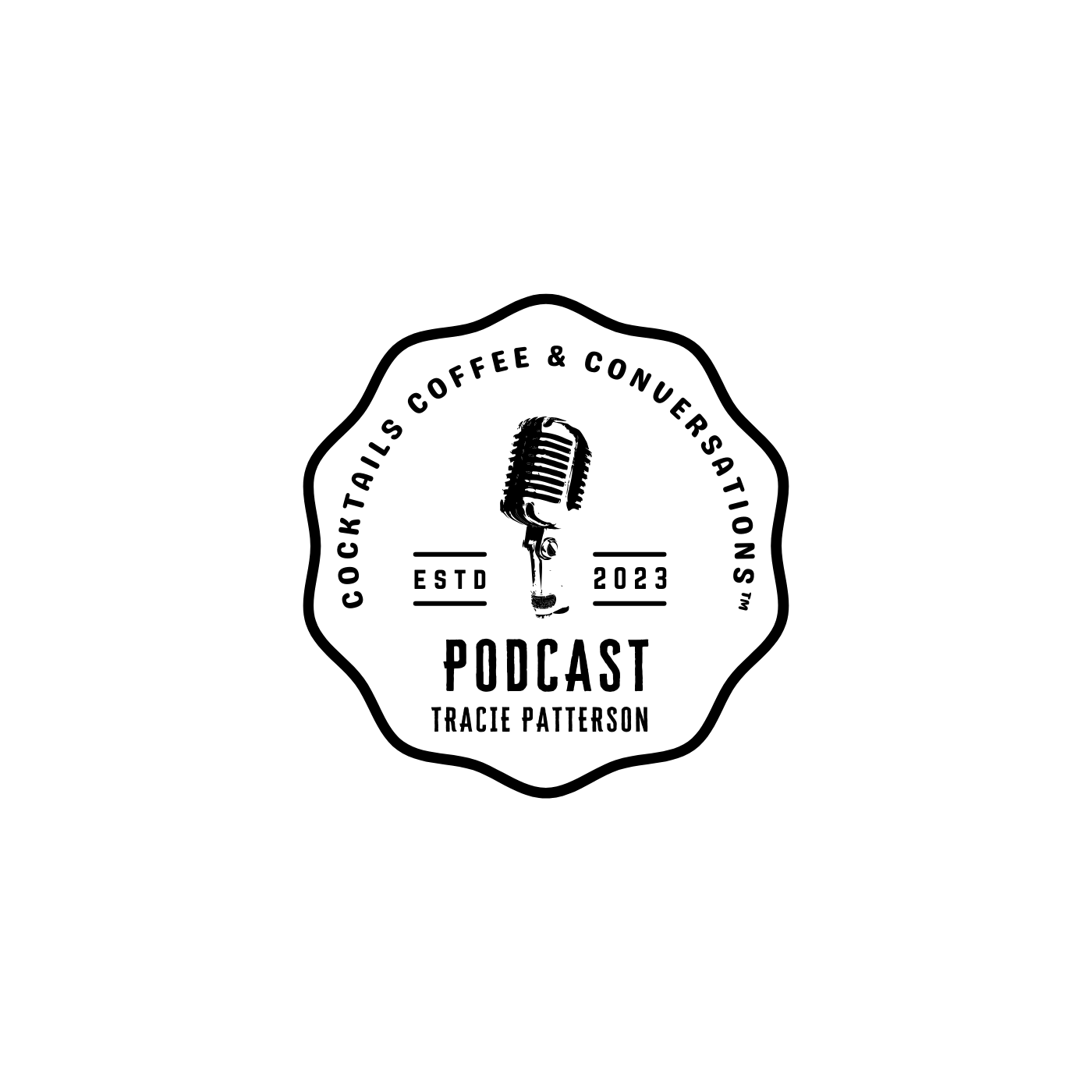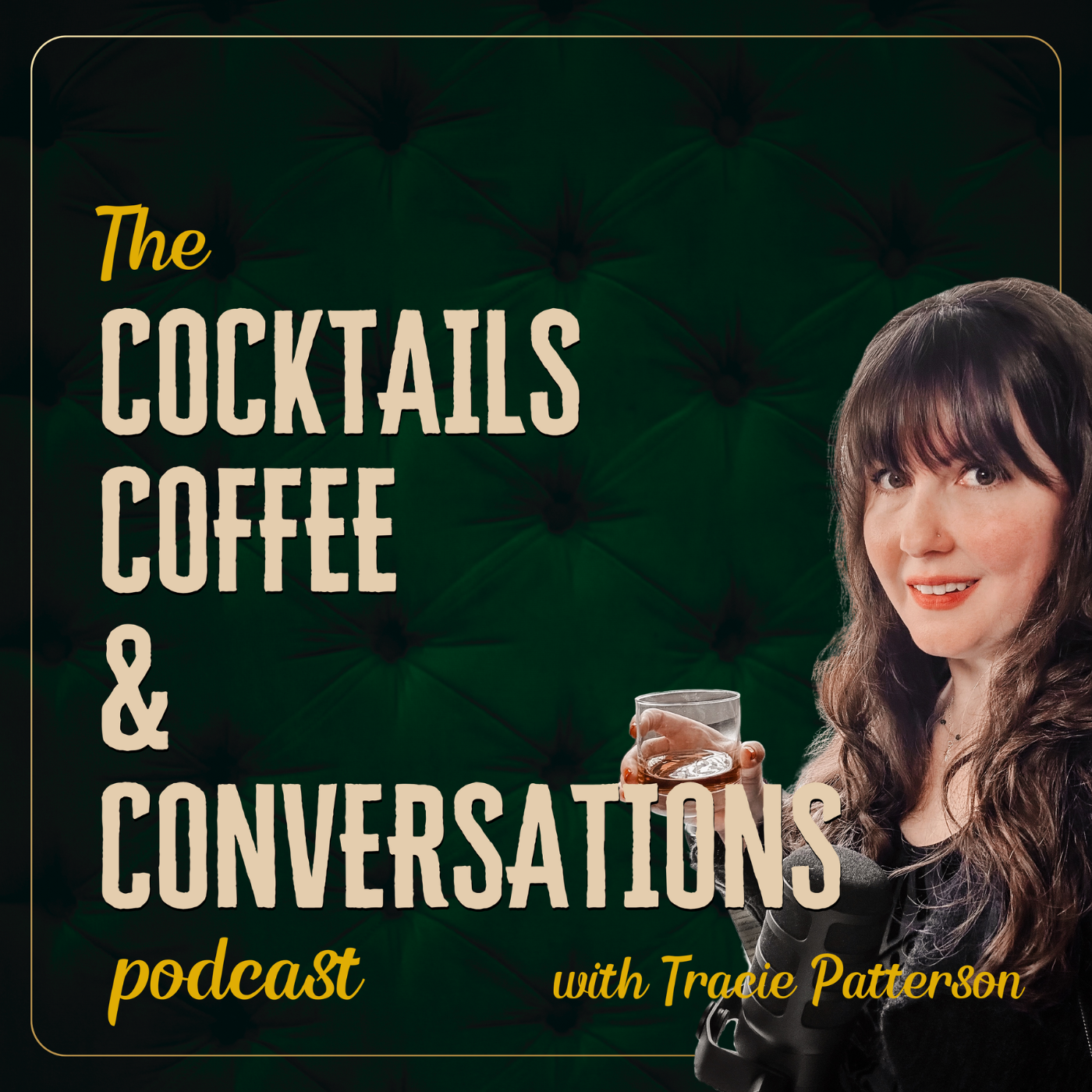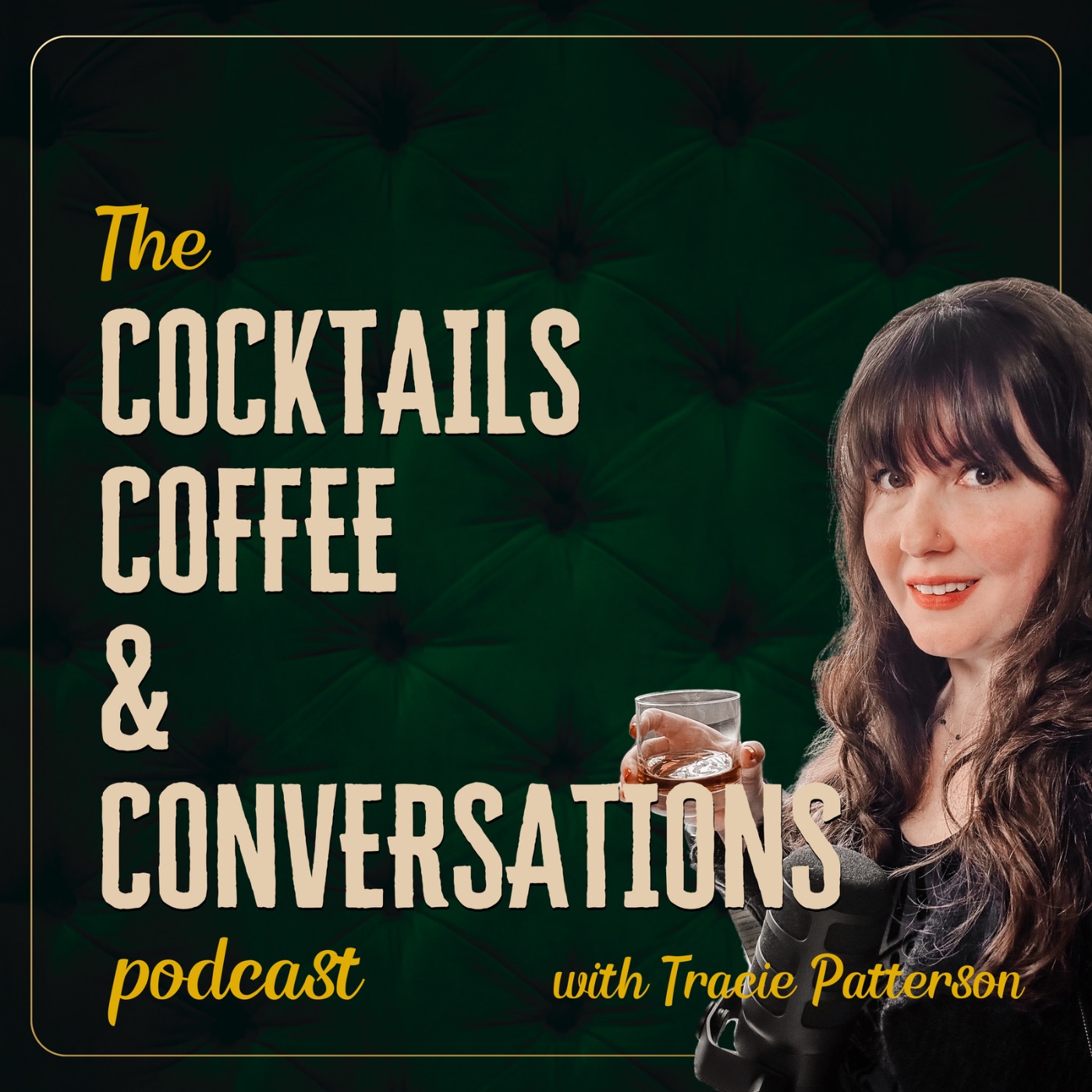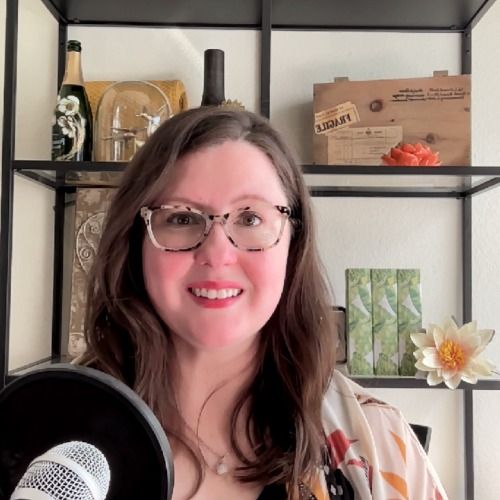Episode 15
Low-ticket part 2: Building Confidence & Trust
In today's episode of Cocktails, Coffee, & Conversations™, Tracie is joined by Sue McLachlan from the Unicorn Advisory to discuss the importance of low ticket offers in online business strategies. The conversation delves into the significance of gathering and using feedback, the role of trust in customer relationships, and how smaller priced offers can pave the way for larger investments. Sue shares her experiences with feedback and emphasizes the importance of maintaining integrity and setting clear expectations in sales messaging. Tracie emphasizes the responsibility of the buyer and the seller when it comes to creating and marketing these offers.
The episode offers a holistic view on experimenting with low ticket offers and the balance of creating value while building a trustworthy brand.
00:00 Embracing Negative Feedback
01:14 Introduction to Sue McLachlan
02:06 The Importance of Low Ticket Offers
02:36 Building Trust with Your Audience
07:39 The Role of Pricing Psychology
11:30 Handling Negative Feedback
20:06 Experimentation and Flexibility in Business
A free tool or two from our host and guest:
Got a question or comment?
Want Tracie's best trainings or to find out more?
www.traciepatterson.com/connection
Catch Sue on all things Kajabi
https://www.youtube.com/@suemclachlan/videos
Thinking about moving your digital business to Kajabi?
Sue offers a $1,000 bonus suite, including a 1:1 Kajabi strategy call when you use her link theunicornadvisory.com/kajabi
Already have Kajabi and want someone by your side to navigate it? Unicorn Heroes Kajabi Support membership is $27 per month and gives you access to live calls and Voxer support on all things Kajabi! theunicornadvisory.com/heroes
CREDITS
Music ColourfulSounds
Podcast Editor Maia McLachlan
Transcript
I've actually made this improvement. Here you go. that would just, you know, completely repair any, any trust breach because you're showing that you're in it to help people. You're not just in it to create a quick buck.
[: r overall business strategy. [: [:And , there's multiple ways to do that. And, , it might be something where they could do it through. listening to on podcasts or reading blogs or watching YouTube or, or something like that, but actually having that sense of this is what it's going to be like if I work with this person, not just if I consume their content, like this is, it's a closer experience potentially to, what it would be like to work together.
and that just helps build trust and, , business is all about relationships and it's all about building trust. people don't tend to just drop, four and five figure. Sums with someone that they don't know and trust. and it's all part of a, like, when you build your audience, you're building your audience's trust in you as a person to solve their problems.
unity where it's, you can go [: [:You know, it's very much, like you had this saying, you're like, Oh, Sue's my human. I want to work with her, you know, whatever she's offering. I don't care. I want in. Yeah. And then you see a price tag and it's like, okay, what do I need to move around? How do I need it? What is, what, what, what changes, what, what, what, what, right.
specially like less than the [:for those of you that are, you know, more B2C, like you're, you're directly just human to human and not like to other entrepreneurs or larger businesses, then it lets them be like, yeah, I was right. This sweater is cool. I'm so glad I took a chance.
[: [:Yeah, definitely.
[:And they then offered their, , 5, 000 coaching program. You know, it made me not do it. So, , it could just be that I don't gel with that person and that's okay. Like I gave them a chance and you will find that there are people in your audience who do that too. But that's where, , I would far rather have someone that was just like, yeah, that's all right.
I don't want to go further off a 37 offer than someone who purchased say, , a multi thousand dollar. Yeah. Program and then got in it and was just like, Oh gosh, that was such a, you know, they just have a bad experience because they didn't, , get along with you or whatever. It's, it's a lot easier to sort of, , walk away from that decision at a lower price point than it is at a higher price point.
And I don't have like negative feelings towards this person. I'm just like, well, I probably wouldn't choose to continue working with you. I would choose to continue with working with someone else where I've done, , something as a similar program. And. felt that it helped me more. And like I said, it might be a teaching style thing.
It may just be a way [: [:It is making sure that the copy that you're writing, the sales messaging that you're giving sets up appropriate expectations. That is
[: [:Right. And we can't control everybody's perceptions, but we can do our damndest to make sure that we are very clear and we are very transparent, that we are very honest and truthful about what it is. And when you were given that example, it reminded me of one that I did that, I. Signed up for a freebie and it had a, a, you know, a workshop upsell, right.
And I was like, oh, okay, cool. It was like, because this is something I was really interested on. I wanted to kind of geek out about it. I love instant access. I'm not a fan of dripping because it's like, I've dedicated this time. Let's go all in. I could get it. I think it was only like 17. It might have only been seven.
It was seven. And yes, side note to everybody listening, you are hearing us repeat very, very similar numbers because of the psychology of pricing. So you will see 7, 9, 17, 27, like repeated over and over again. And it's not just us. Harping on the same example. It's actually what people are choosing for pricing psychology.
So [:So this was probably an asset that she had given, you know, a membership or something, a coaching group. And, it was her basically just going over it. And I was like, that did not add a single piece of value to me. I wasn't looking for the audible version of this. I didn't read it to me. I needed more info or examples of how to answer these questions that I was doing in this.
been not gelling with her or [: [: nt because I didn't get what [:So it's quite funny that I shared that and you picked up that exactly. Cause I was like, yes, that's right. Cause I remember even going back to the sales page and going, no, I'm pretty sure they said that they would be this, you know, this guide and this, you know, strategy and, and all it was, was like two minutes on a video, like whipping through something so fast.
That was like, Oh, I don't know if I get it. yeah.
[: [: [: [: ese, you know, even at these [:And that, you know, increased lifetime customer value and everything, but. You should be creating something that even if they just buy that one thing, that's still getting value out of it. That's still feeling like you delivered on what you said you were going to. And if you find yourself in this situation where someone gives you negative feedback, don't take that as a personal attack.
And don't take that as something where like you're a failure and you're not good at doing this or anything like that. Sometimes when you're so in the weeds, you don't realize. Because it's so natural for you, especially if you're teaching something that you use in your business every day, and it's like second nature and you don't have to think about it.
f the jargon that we can use [:Especially when I, I love negative feedback because it helps me to be like, all right, how can I make this more whole? and if someone has given me feedback on something I thought was missing and I can then go back to them and be like, you know, thank you so much. Like, I really appreciate you being honest with me.
I've actually made this improvement. Here you go. that would just, you know, completely repair any, any trust breach because you're showing that you're in it to help people. You're not just in it to create a quick buck. And unfortunately in our industry, there are a lot of people like a scary number of people who they're only.
Yeah. You know, thing is to create a buck and, and, you know, I love creating money and income and, all that kind of stuff, but I also love doing it and feeling good about it and feeling good about how I'm helping people and making money, not just going, I want to make a million bucks and sell whatever I can and not care about it.
So, That's
[:And you might need to bring in some help with that. And, and I don't just mean like coaching to help, you know, work through anything. I mean like an actual other human to actually read those stories.
[:It's because when you are too close to things, you don't see it. And, and having someone else's eyes and also someone who maybe doesn't have the knowledge that you have will help you, to see if you are, you know, Explaining stuff in a way that's kind of going over people's heads, which be quite common
[: ttle too close, I'm a little [:whenever you get the feedback, whether it is the before or the after, there's also, again, that emotional detachment to be able to, to say. I don't understand, right? Because it's because someone has feedback for us. It may be a great point, but we're still separate humans. So it's okay. If you don't understand what it is that they're trying to say that they need because you think so differently, right?
ty on all that we could do a [: [:Was missing or wasn't right about your program and you, it doesn't, it's not always, Right. Like valid. Yeah. Valid. The customer is not always right. Like it's really important to listen and be like, Oh my gosh, you know, try and be objective about it, but sometimes you'll get feedback and they'll be like, Oh, well I thought it was gonna, you know, include this and you can go, I don't actually know what gave you that impression.
And, uh, and it could be that, you know, you look back or you get someone to look back and you're like, well, that, You know, there was nothing to indicate that would be included. I'm not sure why they thought that that would be included. And that may be a situation where you just refund someone, because obviously they thought it was going to be something and it's not, and that, that is okay too.
o look for is patterns, like [:Like their feedback needs to be valid and it needs to be tracked back. Like if you're getting five people saying, Oh, well I thought this thing was going to be included. And you go on the sales page and you're like, well, I can see how they took that. From that, then that's really important information, but it's not always the case, sometimes people just expect, you know, from their 37 product that they will have an entire business created out of it at the end or whatever they said, you know, that they'll expect all of their earthly problems to be solved or they didn't read it properly or, or other things, whatever
[:It's whatever they're bringing into that conversation. You're going, wait, what are you talking about? Like, Hey, what? Yeah. Did I,
[: change your entire business [: [: [: [:Right. That's again, where that transparency and that integrity comes in where, you know, like where, where you can make it right. And it becomes that, that lesson, you know, for the future, it's like note to self stick only to talking points do not, you know, and if it happens, that's okay, you know, hopefully.
It'll just be like five people and not
[:And, and, you know, I was just talking about something like. Two months ago. And yeah, but I, I really love that. I love that. What you said, it's an invitation to, to explore like it, it doesn't, it's not necessarily a reaction that you need to make. And yeah, please, please treat feedback as much as if you have an emotional reaction to feedback, close the feedback and come back to it the next day.
That is fine. Yeah,
[: And that that's a muscle. It [:It's like, this is not a personal attack. This is not personal feedback. Even if somebody is like, I hate their voice. I'm never listening to them. Great. You know, you've probably had somebody in your life when you were young who had that voice and it triggers you. I get it. That's. And that's your personal story.
I'm going to keep going, you know, it's, it's those kinds of pieces. It's like, um, kind of like that part in, in Harry Potter, where they come up to the cabinet and you're supposed to think of like the worst thing and then turn it into something funny, that's kind of what you have to start doing, you know, with whenever feedback, becomes a bit more criticism,
[: [: ssor Snape in your grandma's [:But Sue and I like to have holistic conversations.
[:And for every person that says. You have to do it this way. There'll be an equal number of people that say you have to do it that way. and that is the thing is that works for them and their business. And, you know, and, and you might be like, well, I don't even want to do low ticket office at all.
And that's [: [:So you are just as valid in your own ideas. to play an experiment as the people who you, you deem to be further along or higher in money or whatever it is, that's putting them on a pedestal. And you know, you are just as valid to, to play around with those things. There's no wrong answer. It's just different options that will give you different results.
So as long as you can come to terms with that, you know, go for it. Okay.
[: [:You get to be fluid. You get to be flexible. And you get to have things that someone might see as a loss, but that you just get to see as a lesson and, and that you can just kind of move and grow from, even if it took you three months, six months, whatever, to, you know, to hatch it into the world and it didn't work out.
uts their dollars behind it. [:




